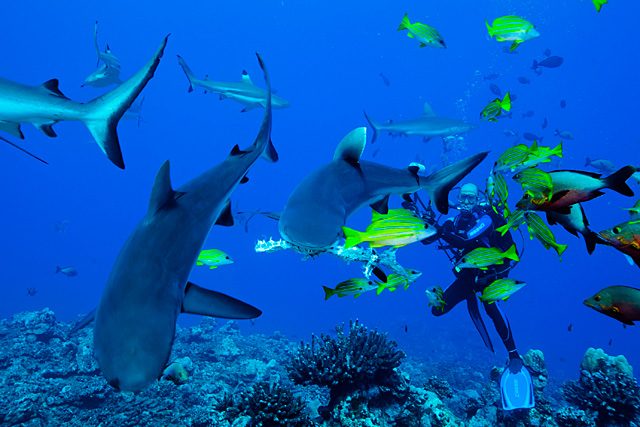SUMMARY
This is AI generated summarization, which may have errors. For context, always refer to the full article.

GENEVA, Switzerland – Seven threatened species of shark and ray are to get greater protection, as a historic agreement aimed at safeguarding the world’s oldest predator takes effect, conservationists said Thursday, September 11.
The 178 members of the Convention on International Trade in Endangered Species (CITES) agreed in March 2013 to tighten regulations on the trade of the three types of hammerhead shark, the porbeagle and oceanic whitetip shark, and two types of manta ray.
The deal, which will take effect on Sunday, September 14, requires countries to issue export permits to ensure the sustainability of the sharks in the wild, otherwise they could face sanctions.
“The listing was a victory for science over politics,” Andy Cornish, who heads a shark preservation initiative backed by WWF and wildlife trade monitoring network Traffic, said in a statement.
More than 70 million sharks are killed worldwide every year, according to WWF, with high demand for shark fins in Asia the biggest driver of the overfishing.
Sharks populations have decreased rapidly, sending some species to the brink of extinction.
Traffic has estimated the total value of the shark fin trade at more than $480 million per year, with the fish hunted for their meat, leather, liver oil and cartilage.
The gill plates of manta rays are highly valued as a health tonic in southern China.
It took 18 months for the agreement to be added to the CITES convention, which regulates the trade of some 35,000 animal and plant species.
“But now the real work (of enforcement) starts,” Cornish said, warning that “the stocks of some of these species may already be too low to allow any fishing.”
“In such cases, a recovery period will be required to pull these sharks and rays back from the brink,” he said.
Environmentalists have campaigned for years in Asia to get companies and consumers to stop selling and buying shark fin, arguing that the predators play a vital role in maintaining healthy oceans.
Cornish stressed that even with CITES regulations on the horizon, there is still no certified sustainable shark fin on the market.
“Until such time, these products should be avoided,” the statement said. – Rappler.com
Add a comment
How does this make you feel?
There are no comments yet. Add your comment to start the conversation.